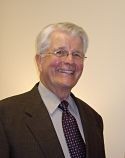Death and Taxes — Life Certainties
Life contains its certainties. Gravity is one. Death is another. Recently, the GOP majority proved that taxes are not, at least for the wealthy few in the nation. Most everything else is open to further investigation. Life certainties would seem to be the province of science. But theories are advanced only to be disproved and replaced by some fresh attempt to understand the universe. Certainty, instead, is the work of religion where very little can be proved outright. Faith is required. Faith is not rational. It is most frequently described as a gift.
Raised Catholic, I enjoyed the belief that death, while regrettable, was simply a launching into eternity. The loss of loved ones was eased by the conviction that they have gone on ahead of those who mourned. There may be some kind of self-aware existence after death. I resist ruling it out. I am not persuaded one way or the other. My ambivalence is a great comfort to me.
If a form of existence continues after death, it raises a number of questions. What is outside the universe? It may be expanding, but into what? At death, am I to be recycled through the existing universe or dispatched beyond into a timeless realm? If eternity is the non-material continuance of a life as I know it, how am I to avoid treating every moment as cheap and expendable?
I am a man of faith but few beliefs. My faith does not shut out the disquiet of doubt. Doubt allows unlimited possibilities. Doubt enables awe. Awe is preferable to certainty. Doubt is not a state of being lost. I am not lost. I have never been more aware of who I am. The Supreme Being knows who I am, my mind, and my heart. And if there is no Supreme Being, what I think doesn’t matter.
One night, unable to sleep, I got up and found my wife working late in the light of her study. I needed to talk to her. I did not care how foolish I looked, how frightened and angry and confused. I love my wife. And I love my life. I don’t ever want to let go of either—not ever. I wept. I paced. Ranted. My wife was patient and gentle.
“We all have those thoughts from time to time,” she soothed. “They are distressing, but it is so, and there is nothing any of us can do about it.”
“It pisses me off,” composer/songwriter Paul Simon said recently in talking about the inevitability of his own death. Me too. I measure of how much I value my life by the depth of my grief at the thought of losing it. My grief frames my joy. I know for whom the bell tolls.
“Rage against the dying of the light,” wrote Dylan Thomas. But to what end? Perhaps only for the comfort of knowing others have felt the same thing, that the anger, the grief, and the anxiety are deeply human. Loss, and therefore grief, needs to take its place on the list of life certainties.
My empty faith comforts me in my ignorance. I can doubt without fear. My ignorance is an honest state of mind, as it is with my fellow mammals. If the Divine wanted to be well known, man’s religions would not need to work so hard at it. I know something of the enormity of the universe—it’s violence and indifference toward man. I know about man’s inhumanity to man. I know how passive an all-powerful being can be in the face of man’s cruelty toward his own, or the cruelty of insanity, or the acts of the insane against the innocent, or the cruelty of prolonged, painful death. If there is meaning in suffering, it is usually discovered well after one is relieved of it. In fact, suffering at the hands of one’s fellow man can be added to the list of life certainties. As a race, we seem incapable of eliminating it.
God does NOT work in mysterious ways, as men cry when they do not understand indiscriminate nature. I accept that I do not understand. I forsake trying. My ignorance changes nothing. It may take courage, but it is not painful. I would rather make my way in a dusky light than push forward with the blinding glare of a credo beamed into my face. That may not hold for others, but while I live, I want to see.

